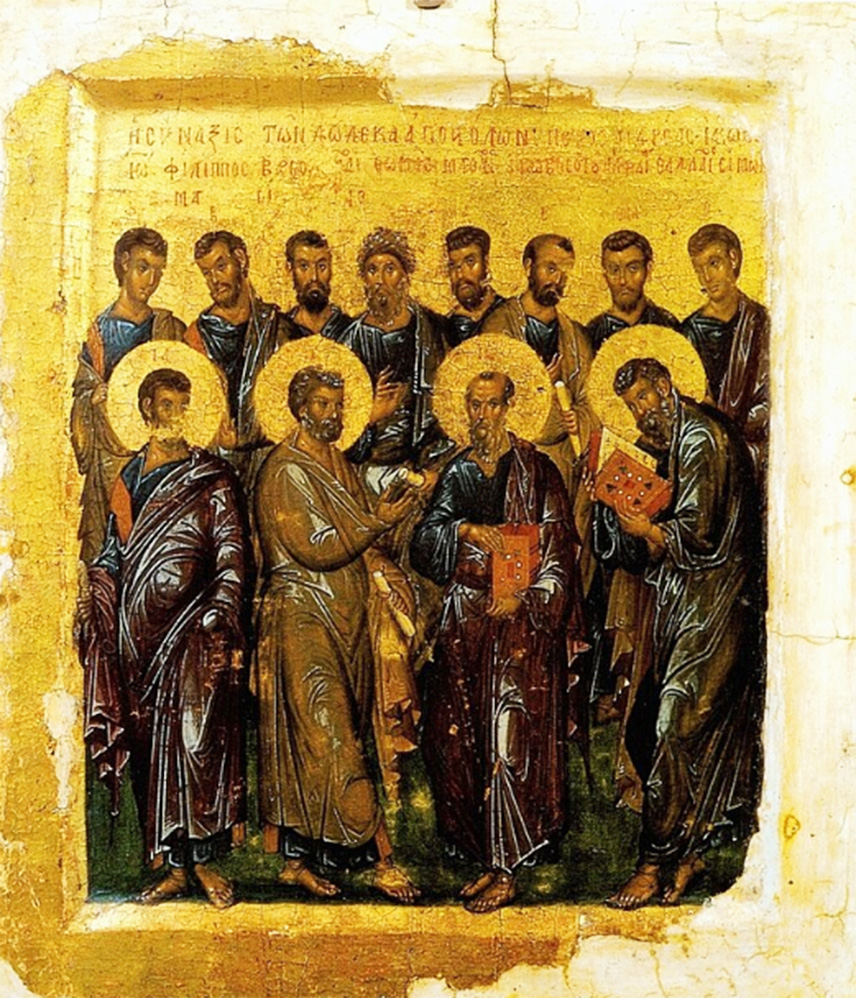The Holy Spirit, the Apostles’s Creed and the Great Mystery
Now the earth was formless and empty, darkness was over the surface of the deep, and the Spirit of God was hovering over the waters.
Genesis 1:2

The Synaxis of the Twelve Apostles. Russian, 14th century, Moscow Museum
What was once called the “Holy Ghost” is an impelling force, creating wider consciousness and responsibility and thus enriched cognition.
The real history of the world seems to be the progressive incarnation of the deity.
Carl Jung, Letters Vol. II, Page 436.
As a young teenager, I was taught to recite the Apostles’ Creed, which, among other things, includes the phrase, “I believe in the Holy Spirit.”
Huh? What did they mean, Holy Spirit? It sounded, well, awfully Holy with a capital H—something from a realm far beyond my capacity to understand. It seemed like it might be some super big, important, invisible being from outer space.
The concept of the Holy Spirit made absolutely no sense to me, nor did any adult take the time to explain it to me in terms that I could understand.
Only when I was much older and far beyond being told what religious dogma to believe did I come across the concept of the Holy Spirit in the writings of C.G. Jung. For the first time, the idea of the Holy Spirit made both metaphorical and psychological sense to me.
Holy literally means “To make whole”. And while I have not experienced the overwhelming presence of the Holy Spirit that transforms the personality — as Jung describes in the Red Book, or the kind of shattering encounter that Saul had on the road to Damascus — I do understand that moments of Awe, the experiencing of the Great Mystery, can be deeply healing . Maybe not a Capital-H Holy, but clearly a holy spirit, in the sense of deepening one’s inner feeling of wholeness…
